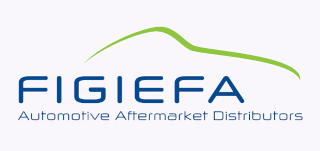Connected cars allow innovative remote functions that enable multiple new use cases and business models. Remote access to highly granular in-vehicle data enables advanced analytics including predictive failure analysis, driving style analysis and highly accurate analytics on wear and tear of components.
What is the issue?
Connected cars allow innovative remote functions that enable multiple new use cases and business models. Remote access to highly granular in-vehicle data enables advanced analytics including predictive failure analysis, driving style analysis and highly accurate analytics on wear and tear of components. When such technology is combined with remote access to the vehicle and driver interaction through the vehicle human-machine interface, new services and business models can be created. Predictive and preventive maintenance can thus support new business models such as ‘Maintenance as a Service’ or ‘Tires as a Service’.
However, the proprietary closed technical design of manufacturers’ in-vehicle telematics systems and thus the lack of an efficient, interoperable access to in-vehicle data and resources prevents the automotive aftermarket and mobility services sector to realise its digital potential. Independent service providers require the ability to offer competitive digital services to end-users/corporate customers genuinely independently from the vehicle manufacturer (i.e. the ability to compete effectively as independent businesses). As vehicle manufacturers accelerate the deployment of such systems, they reduce further the scope for competition.
Alerted by FIGIEFA and other associations representing various segments of the independent aftermarket, the European Commission has initiated a process to legislate on the issue and set a legal framework for remote access to in-vehicle data and functions. It is crucial that such a legislation would preserve a level-playing field for competition.
How does it impact our business ?
The so-called ‘Extended Vehicle’ (ExVe) model promoted by vehicle manufacturers channels all remote data communication through the vehicle manufacturer’s proprietary backend server. Only a limited part of the in-vehicle data and a narrow subset of functions, based on the business model of the vehicle manufacturer, are made available to independent service providers. It gives vehicle manufacturers full control to decide arbitrarily how (mainly aggregated and already diagnosed/processed), when (latencies) and to whom access to data, functions and resources will be granted. Via this approach competing providers become dependent on the vehicle manufacturer and are no longer able to compete effectively. Vehicle manufacturers’ pre-selected data, diagnostics and repair methods would restrict independent providers to ‘duplicated’, redundant services. Innovation as well as effective competition will be hampered within the overall automotive sector.
The technically closed ExVe system places the vehicle manufacturer into a role of self-appointed gatekeeper, interposing itself between its competitors and their customers. ExVe thereby enables not only full control of each vehicle manufacturer over its brand-specific aftermarket, but ultimately also full control over all vehicle-related services around the connected and automated mobility.
The lack of independent competition deprives consumers and fleet operators of genuine choice; they become ‘locked-in’ into the digital eco-system of the vehicle manufacturer immediately after purchase, as switching to another vehicle is generally not an option. The economic consequences of this proprietary, unregulated ExVe access to in-vehicle data could lead to additional costs for consumers of up to €32 billion, and losses for independent service providers up to €33 billion by 2030.
What is FIGIEFA doing ?
FIGIEFA is actively defending the interests of independent distributors, repairers, mobility service providers, and the broader Independent Automotive Aftermarket (IAM) in Europe at a time of profound digital change in the industry. As vehicles become more connected, software-defined and data-driven, we are working to ensure that independent service providers are not locked out of the opportunities created by access to in-vehicle data, functions and resources — and that European consumers and fleets benefit from genuine choice, innovation and affordability.
Our key areas of action
Policy advocacy & legislative engagement
-
- We engage directly with EU institutions, including the European Commission, the European Parliament, and national governments, to ensure that the Data Act is properly implemented in the automotive ecosystem and to advocate for a necessary sector-specific regulation on access to in-vehicle data, functions, and resources.
- We provide detailed technical, legal and economic inputs, backed by independent studies, to highlight the unique features of the independent aftermarket: the need for real-time or near-real-time data streams, independent direct connectivity options, the human-machine interface (HMI) in the vehicle, and the ability to deploy innovative business models beyond those defined by the vehicle manufacturer.
- We advocate for legislation that ensures a level playing field: independent service providers must not become dependent intermediaries of vehicle manufacturers via proprietary back-ends, but must have genuine access to data and resources under fair, non-discriminatory, interoperable and secure conditions.
Defining and promoting the aftermarket’s needs
- Working closely with our membership and partners (independent wholesalers, retailers, garage networks, equipment suppliers, mobility-service operators), we map out concrete use cases, e.g., predictive/pre-emptive maintenance; connected tyre services; fleet services beyond original-equipment-manufacturer (OEM) ecosystems; and new mobility and subscription models.
- We emphasise that access must cover not only raw data, but also vehicle functions and resources (for example, the HMI, control modules, activation/coding of parts, remote diagnostics) — because the future of mobility services is built on more than just passive data streams.
- We highlight the importance of cybersecurity, vehicle safety, data protection and interoperability in parallel — independent access must not compromise safety or security, and a trusted ecosystem is what delivers scalable innovation.
Promoting an open, interoperable data ecosystem
- We advocate for architectures that allow independent providers to connect fairly with vehicles, alongside vehicle manufacturers — for example, via on-board telematics platforms, standardised access interfaces, and transparent gateways — rather than being channelled exclusively through a manufacturer’s “extended vehicle” (ExVe) model.
- We participate in technical workshops, seminars and cross-industry initiatives to demonstrate that high levels of cybersecurity, data protection and safety are compatible with independent access and competition.
Awareness-raising & capacity-building for independent service providers
- We deliver webinars, event panels, workshops and publications to support our members in understanding the digital transitions ahead: connected vehicles, telematics, over-the-air updates, software-defined vehicles, and data-driven services.
- We help them prepare for how business models are shifting — from parts sales and mechanical servicing to data-driven services, subscription-based mobility offers, predictive maintenance and beyond.
Monitoring implementation & defending competition
- With the Data Act now fully in force, we are monitoring its implementation across EU Member States in the automotive context — noting areas where it may fall short for the aftermarket or where independent service providers still face structural barriers.
- We are actively advancing the case for the sector-specific regulation on access to in-vehicle data, functions and resources, under the responsibility of the Commissioner for Internal Market, as a necessary complement to the horizontal Data Act.
- We stand ready to initiate enforcement, complaints or formal interventions where independent providers are excluded, face discrimination, or are subsumed into manufacturer-controlled ecosystems under the guise of “connectivity”.
Our specific asks & priorities
- Direct user/control provider access: The customer (private or business) must have the right to share vehicle-generated data with any third-party of their choice in real-time or near-real-time, under fair, transparent conditions — in line with the Data Act.
- Access to functions and resources: Legislation must go beyond data to ensure that independent providers have access to vehicle functions (e.g., software activation, calibration, HMI control, OTA update platforms) and resources (sensors, modules) to deliver competitive services.
- Neutral, interoperable technical interface: The ecosystem should provide standardised, manufacturer-agnostic interfaces and protocols to allow independent providers to connect securely and directly with vehicles — avoiding locked ecosystems and “gatekeeper” roles of manufacturers.
- Security, safety & data protection built-in: Independent access must be designed with full compliance to cybersecurity, safety and data-protection requirements — clarifying responsibilities and liability across connected services.
- Pre-market readiness and transitional clarity: Service providers must be able to develop their solutions ahead of data access being granted (i.e., before the customer opts in) in order to deliver value. Legislation should provide clarity on transitional arrangements, economic impact, and timelines.
- Independent aftermarket visibility in EU strategy: The independent aftermarket must be fully recognised within the Automotive Industrial Action Plan and other EU strategic documents — acknowledging its role in employment, industrial competitiveness, vehicle lifetime cost, circular economy, and consumer mobility affordability.
Why this matters
- Without fair access, independent service providers are increasingly shut out by the “ExVe” model (where manufacturers channel remote connectivity and vehicle-data streams into proprietary back-ends), which reduces competition, increases lock-in for consumers and fleets, and raises long-term maintenance and mobility costs.
- A truly competitive aftermarket delivers benefits to consumers (lower cost of ownership, more choice, innovation), to fleets (better services, new business models) and to the European economy (preservation of jobs, SMEs, local servicing networks).
- As vehicles become software-defined and digitally connected, the ability to service, repair, upgrade, and enhance vehicles over their lifetimes depends not only on parts but also on data, functions, and resources — meaning the aftermarket must be viable in the digital age.

